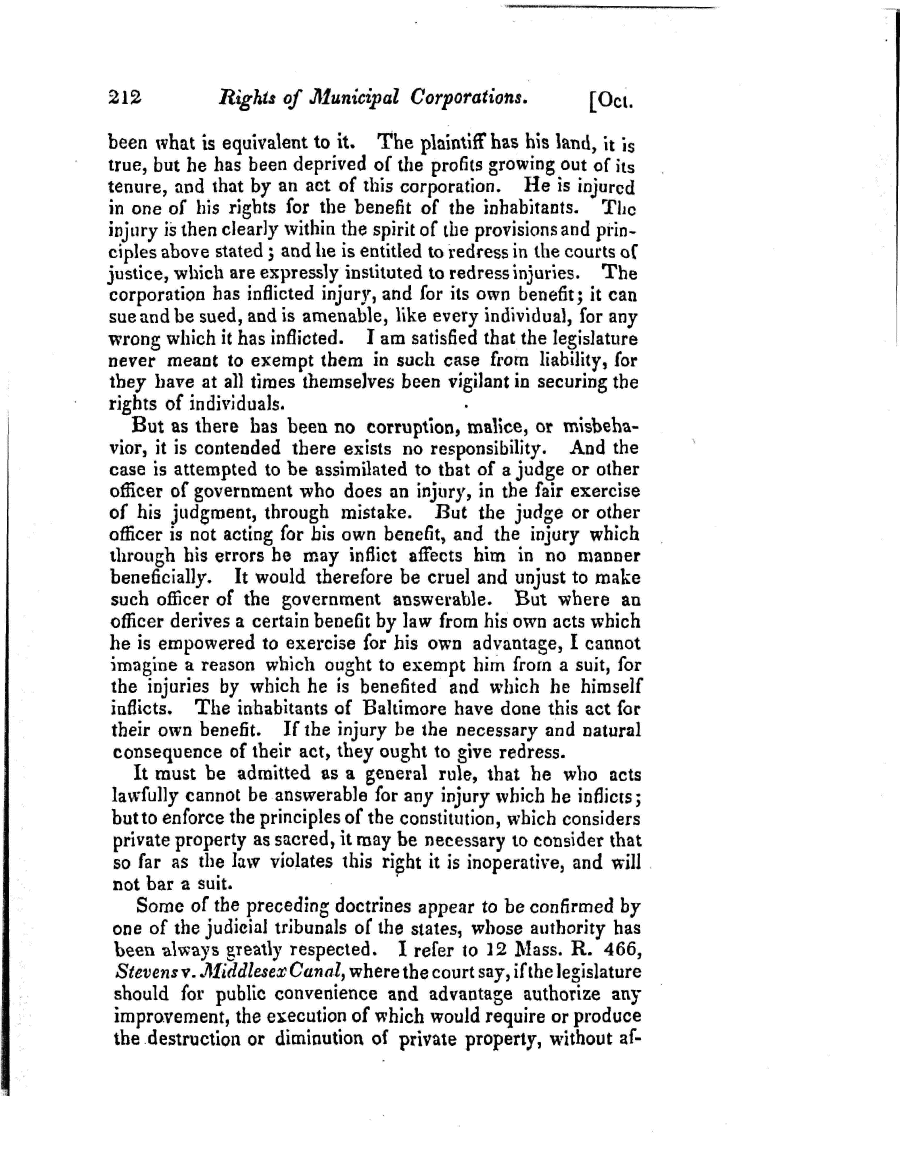|
Rights of Municipal Corporations. [Oct.
been what is equivalent to it. The plaintiff has his land, it is
true, but he has been deprived of the profits growing out of its
tenure, and that by an act of this corporation. He is injured
in one of his rights for the benefit of the inhabitants. The
injury is then clearly within the spirit of the provisions and prin-
ciples above stated 5 and he is entitled to redress in the courts of
justice, which are expressly instituted to redress injuries. The
corporation has inflicted injury, and for its own benefit; it can
sue and be sued, and is amenable, like every individual, for any
wrong which it has inflicted. I am satisfied that the legislature
never meant to exempt them in such case from liability, for
they have at all tiroes themselves been vigilant in securing the
rights of individuals.
But as there has been no corruption, malice, or misbeha-
vior, it is contended there exists no responsibility. And the
case is attempted to be assimilated to that of a judge or other
officer of government who does an injury, in the fair exercise
of his judgment, through mistake. But the judge or other
officer is not acting for bis own benefit, and the injury which
through his errors he may inflict affects him in no manner
beneficially. It would therefore be cruel and unjust to make
such officer of the government answerable. But where an
officer derives a certain benefit by law from his own acts which
he is empowered to exercise for his own advantage, I cannot
imagine a reason which ought to exempt him from a suit, for
the injuries by which he is benefited and which he himself
inflicts. The inhabitants of Baltimore have done this act for
their own benefit. If the injury be the necessary and natural
consequence of their act, they ought to give redress.
It must be admitted as a general rule, that he who acts
lawfully cannot be answerable for any injury which he inflicts;
butto enforce the principles of the constitution, which considers
private property as sacred, it may be necessary to consider that
so far as the law violates this right it is inoperative, and will
not bar a suit.
Some of the preceding doctrines appear to be confirmed by
one of the judicial tribunals of the states, whose authority has
been always greatly respected. I refer to 12 Mass. R. 466,
Stevcns v. Middlesex Canal, where the court say, if the legislature
should for public convenience and advantage authorize any
improvement, the execution of which would require or produce
the destruction or diminution of private property, without af-
|

